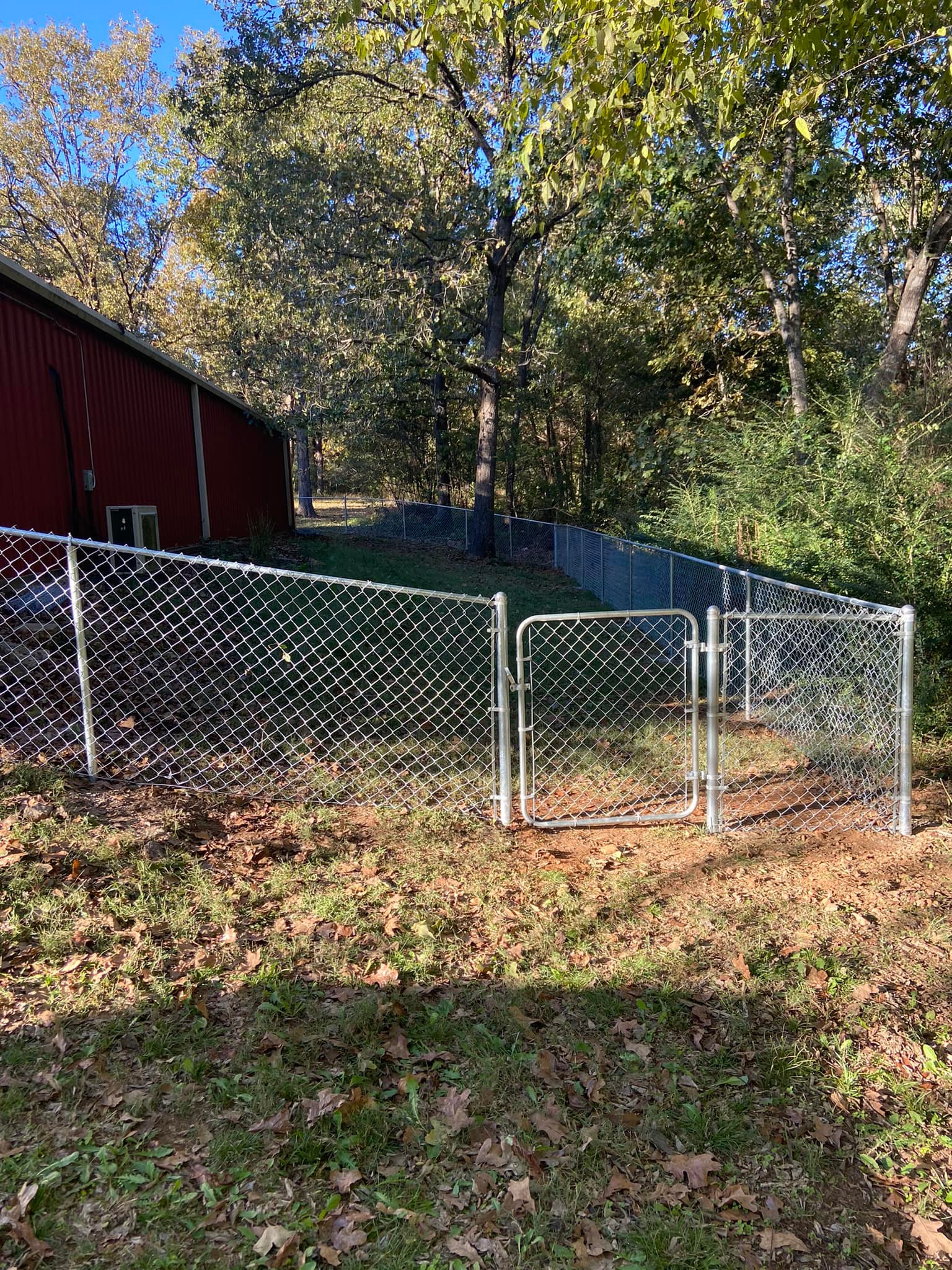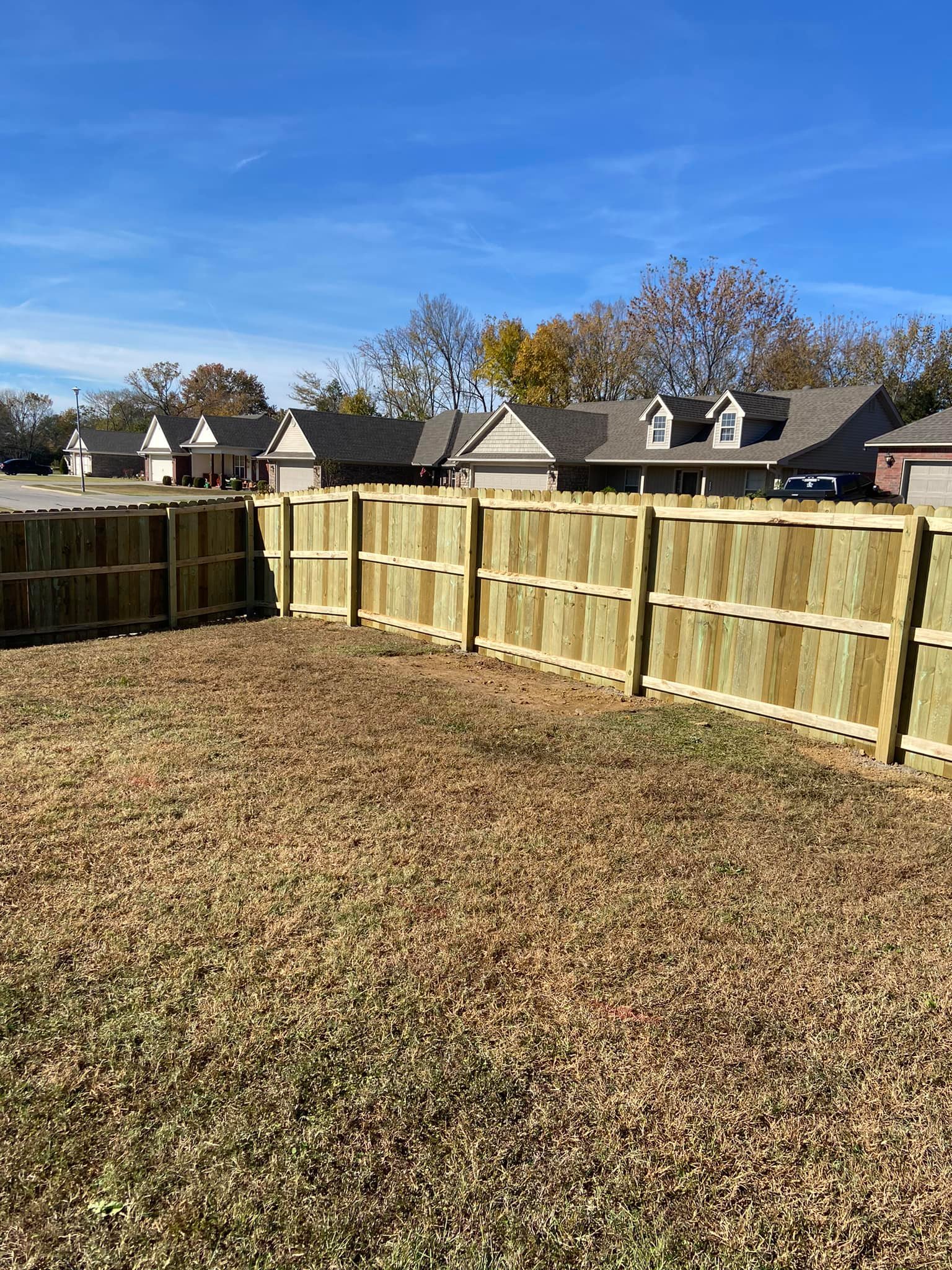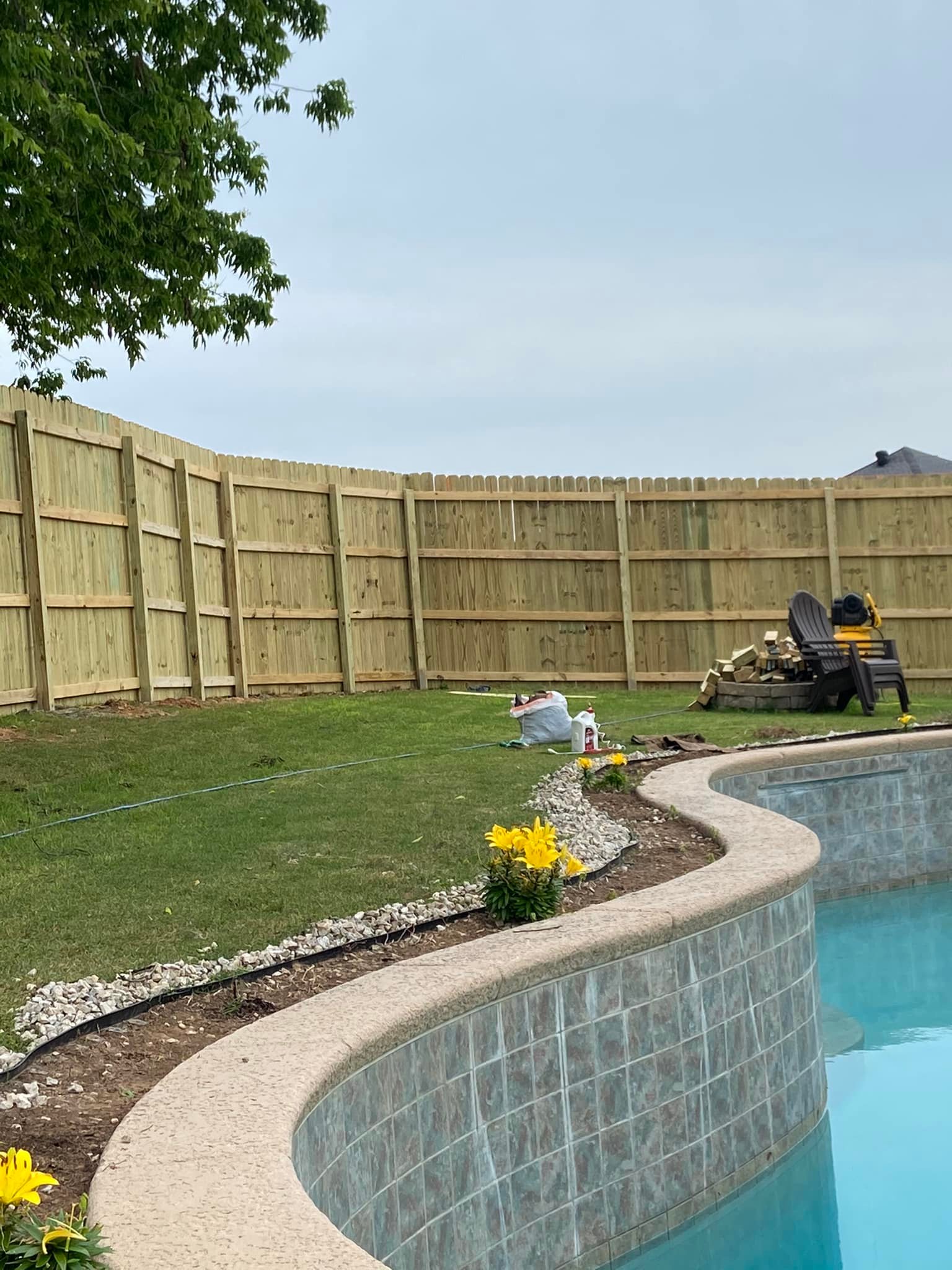In-Depth Analysis of Various Fence Alternatives for Your Residential Property
When taking into consideration the various fencing options offered for your home, it is necessary to look into the subtleties of each selection to make an educated decision that lines up with both your aesthetic preferences and practical demands. From the classic charm of wood fencings to the low-maintenance attraction of plastic, the range of products and designs can be overwhelming. Each kind of fencing brings its unique collection of advantages and factors to consider, influencing elements such as durability, cost, and upkeep needs. As we discover the ins and outs of wood, vinyl, chain web link, functioned iron, and composite fencings, you will acquire useful insights into exactly how to select the most ideal alternative for your property.
Wood Fences
Wood fencings are a popular selection for homeowner seeking a typical and natural search for their limits. With their timeless allure and adaptability, wood fences can enhance various architectural designs and landscaping layouts. Among the key benefits of timber fences is their capacity to blend perfectly right into the surrounding environment, boosting the general aesthetic of the property.
When thinking about wood fencings, it is important to pick the sort of wood very carefully. Cedar and redwood are prominent selections due to their natural resistance to degeneration and bugs, making them resilient alternatives for outside usage. Pine and spruce are much more affordable options but might require additional treatments to boost their durability.

Vinyl Fences
Taking into consideration a different material alternative for residential or commercial property limits, plastic fencings use a contemporary and low-maintenance choice to standard timber secure fencing. Plastic fences are made from polyvinyl chloride (PVC) and are known for their toughness and resistance to rot, rust, and pests. These fencings are available in a range of styles and shades, providing flexibility in style options to match different aesthetic preferences. Furthermore, vinyl fences require very little upkeep compared to wood fencings, as they do not require to be repainted, stained, or secured. They are simple to tidy and commonly just need periodic cleaning with soap and water to preserve their appearance.
Unlike wood fencings, vinyl fences are not prone to bending, breaking, or splintering, making sure an enduring investment for your residential or commercial property. On the whole, plastic fencings offer a blend of performance, aesthetic appeals, and durability that make them a popular option for building owners seeking an easy secure fencing solution.
Chain Web Link Fences
Chain web link fences are a prominent choice for building proprietors looking for an affordable and durable fencing option. These fencings are understood for their usefulness and performance. Among the essential advantages of wire mesh fence is their price contrasted to various other fencing go to website alternatives. They are relatively low in price upfront and call for very little maintenance in time, making them an affordable choice for numerous property proprietors.
In addition to their cost-effectiveness, chain link fences are also very resilient. fence company. Built from galvanized steel wire, these fencings are developed to hold up against harsh climate conditions and resist corrosion, ensuring they can last for years without the demand for regular repair work or replacements

Wrought Iron Fencings
Originating from the realm of practicality and resilience, functioned iron fences provide an innovative and timeless secure fencing option for property proprietors looking for both visual charm and safety. These fencings are renowned for their toughness, making them a Visit Your URL resilient choice for specifying property limits. Wrought iron fences are extremely adjustable, permitting homeowner to select from a selection of elaborate designs to match their choices. Not just do these fencings offer safety and security by acting as a deterrent to intruders, yet they also include a touch of sophistication to any kind of home. Despite their first higher cost compared to some various other fencing choices, wrought iron fences require marginal upkeep, saving cash in the lengthy run. Furthermore, with proper treatment, these fencings can withstand harsh climate problems without weakening. In general, functioned iron fences are a leading choice for those looking to integrate capability with visual appeal in their residential property's fencing option.
Composite Fences
Compound fences, blending the advantages of different materials, provide a functional and low-maintenance fence option for residential or commercial property proprietors seeking a balance in between sturdiness and looks. These fences normally include a mix of timber fibers, plastic, and sometimes various other products, offering the all-natural look of timber with the added toughness and resilience of synthetic materials. Among the vital benefits of composite fences is their resistance to rot, our website degeneration, and bugs, making them a long-lasting option that requires minimal maintenance compared to conventional wood fencings.
In addition, composite fences can be found in a broad array of designs, colors, and styles, permitting residential or commercial property owners to choose a fencing that enhances their home's visual while still appreciating the advantages of a sturdy and long-lasting fencing option. While the ahead of time price of composite fences might be greater than a few other products, the lasting financial savings on upkeep and substitute make them an economical choice for lots of property owners seeking a trusted and eye-catching fencing alternative.

Conclusion
Wood fences supply a traditional appearance but require routine maintenance, while vinyl fences are low maintenance however may be a lot more costly. Chain web link fencings are affordable and long lasting, while functioned iron fences offer a timeless and classy appearance.
Comments on “Expert Fence Installation Solutions for Residential and Commercial Qualities”